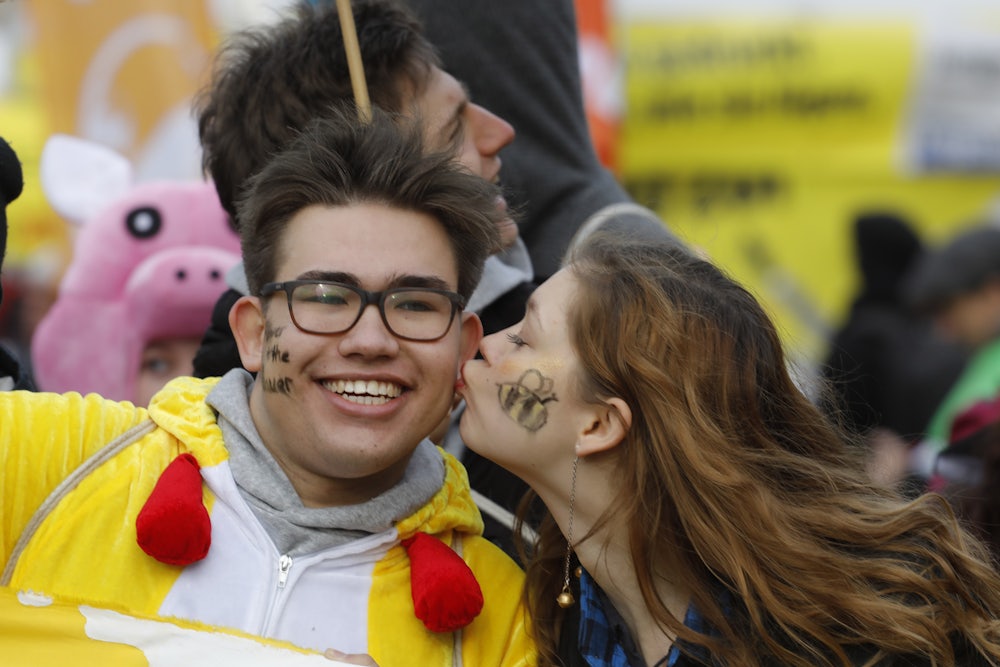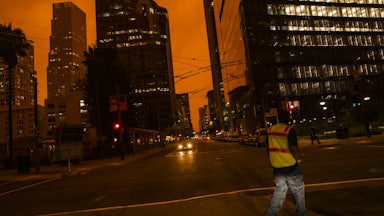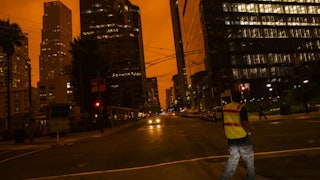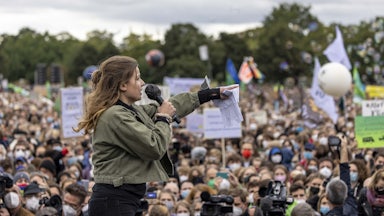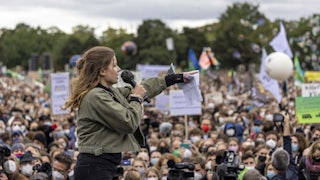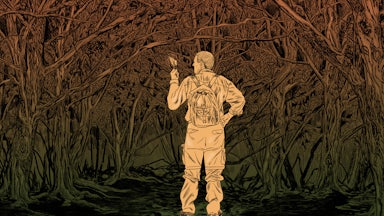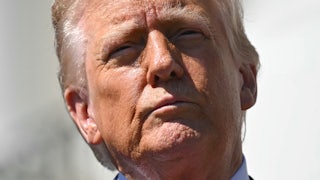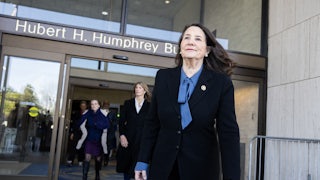Climate denial is not hot, according to new data offering some conditional hope for the species. Data from online dating site OkCupid, recently shared with The Hill, found that climate denial was the biggest deal-breaker for users on the popular dating app, surpassing differences on gun control, abortion, and other issues. Over the past year, the app has asked 250,000 people if it was important that a potential paramour care about the planet, and 90 percent said it was. This reinforces data that OkCupid made public last year reporting similar results. In early 2020, journalist Emily Atkin reported a 240 percent increase in mentions of climate change on OkCupid profiles over the 2018–9 period; Tinder released similar findings in 2019.
This is the most committed OkCupid users have been to any issue, in the history of the company’s data collection on such subjects. It adds to a growing body of research—a recent global survey published in The Lancet, for example, in which 45 percent of young people said that concern over climate change affected their mental health and ability to cope with day-to-day life—showing that climate change has become central to many people’s emotional lives. And it also suggests that, slowly, new generations of Americans are rejecting petromasculinity: the climate denial, authoritarian politics, and sexism that are too often inextricably linked.
OkCupid’s data isn’t conducted like a formal public opinion survey and isn’t representative of the population at large. The median age of the site’s users has been reported as being around 32 in the past, which would be younger than the national median age of 38.4 in 2019. And there’s good reason to believe, given data on users’ interaction with a 2018 “Trump Filter” and other political questions, that the users skew liberal. Most data also shows dating sites and apps skew urban and suburban. But the new data still offers interesting insights about this particular group of users. OkCupid didn’t find significant differences among age groups, for example, though region could be an intensifier: 94 percent of San Franciscan respondents said they wouldn’t date someone who didn’t care about climate change, nine points more than those from Miami. (Although maybe Miami daters should get a little less tolerant of the deniers: The city floods regularly and may be underwater by 2100.)
Women were more likely than men to consider climate concern a necessary quality in a mate. The fact that there’s a gender gap isn’t surprising: After all, climate denial and a certain aggressive cartoon masculinity have long been deeply intertwined. A lot of propaganda has gone into this gender disparity, as big gas-guzzling cars have long been advertised to men, the bigger the better. The rage conservative men have hurled at Greta Thunberg and Alexandria Ocasio-Cortez has been deranged and consistent with research showing a link between climate denial and hostility to feminism (and outspoken women).
Fossil fuels have long been associated with a certain sort of red-blooded, heteronormative, nationalist masculinity: When Sarah Palin yelled, “Drill, Baby, Drill,” in support of exploiting the resources of the Arctic, it was hard to ignore the sexual innuendo. In 2015, the Alaska governor was even more explicit, criticizing Obama’s veto of the Keystone Pipeline in a Facebook post entitled “Obama’s Impotence; Why He Can’t ‘Drill, Baby, Drill,’” that argued the president was “impotent” against the Islamic State’s burgeoning oil empire.
Behaviors associated with climate-conscious habits, in contrast, are often coded as feminine; I once saw a group of Trump-supporting women loudly taunt a young liberal protester as a “soy boy,” a term that has become widespread in conservative circles. And electric cars are “gay,” famously—just as trains are European.
Indeed, straight men’s anxiety about environmentalism has been a huge problem, contributing to the culture wars around climate change, which might otherwise be a unifying issue for people who don’t own millions in Exxon stock. A Penn State study found that heterosexual men were reluctant to engage in eco-friendly behaviors like carrying reusable shopping bags, for fear of appearing feminine or gay. The more important it was to a man that he be perceived as straight, the more wary he was about engaging in these small acts of care for the planet. This may help explain why people identifying as LGBTQ are much more likely to become environmental activists.
But it seems a lot of online daters are rejecting this worldview. Taken alone, it would be encouraging even to learn that women of a certain demographic are done with petromasculinity and other deadly toxins. But another cheering finding in OkCupid’s data is that the gender gap isn’t that big. Men don’t want to date climate deniers, either: Climate is the top issue for male respondents, too. This suggests that significant numbers of men are almost equally fed up with the machismo of climate denial. In fact, the gender gap between users was smaller on climate than on any other issue. The men of OkCupid, are, it seems, not intimidated by soy boy taunts.
Of course, some men will be offended by these findings. It’s not hard to imagine certain corners of the internet igniting over the fear that not only is AOC going to take their hamburgers, but climate denialists may have more trouble getting laid. The incels aren’t going to like this.
But it seems possible that, among other things, our climate crisis will help change masculinity, or at least what is rewarded in men. As Jane Reynolds, OkCupid’s director of product marketing, told The Hill, “We kind of joke that caring about climate change is the new tall, dark and handsome.” It’s not hard to see why. Who wants to deal with someone too insecure to carry a reusable bag?
